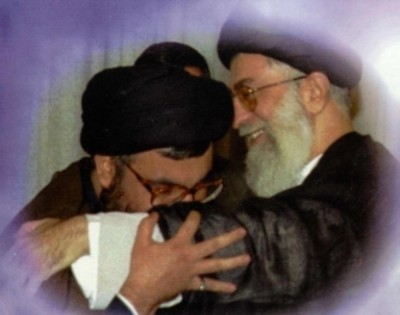
By: Youssef Diab
The Lebanese are watching with great concern the developments in the region, most notably the attacks on Saudi Aramco’s oil plants, the purported Iranian involvement and its serious repercussions.
The recent events have brought back to their mind a speech by Hezbollah Secretary General Hassan Nasrallah, when he put himself at the disposal of Iran’s supreme leader, Ali Khamenei, and stressed that any military strike against Iran “will ignite the whole region and annihilate countries and peoples.”
Amid the dangerous local and regional developments, the Lebanese State has kept silence about the possibility of Lebanon’s involvement in a regional war, while no official stance was issued by President Michel Aoun or his political team, the Free Patriotic Movement, Hezbollah’s main ally.
In this regard, the coordinator of the General Secretariat of the March 14 Forces, former MP Fares Soueid, said he was not surprised at Aoun’s silence over the risks facing Lebanon due to Nasrallah’s comments.
In comments to Asharq Al-Awsat, he said: “The bargain, which took place between the Christian team and Hezbollah, based on a Maronite-Shiite duality, considers that the alliance with Russia, Iran and the Syrian regime… is more important than Lebanon’s interests and Arab affiliation.”
“When President Michel Aoun goes to Moscow and thanks President Vladimir Putin for protecting minorities in the region, he means that he considers Christians just a frightened minority in need of protection. He found this protection with Hezbollah and Iran at the expense of the Arab interest,” Soueid underlined.
Political forces and anti-Hezbollah figures consider Nasrallah’s words as putting the state with all its constitutional institutions from the presidency to the parliament and government, under the authority of the Iranian supreme leader, and placing the fate of the Lebanese in the hands of Iran and the Revolutionary Guards.
Former Deputy Prime Minister Major-General Issam Abu Jamra (dissident from the FPM) blamed the forces that made the settlement with Aoun, especially Prime Minister Saad Hariri, and Lebanese Forces Party Leader Dr. Samir Geagea “responsible for Hezbollah’s domination over the decision-making in Lebanon.”
“This settlement has brought Lebanon to the catastrophe, because the country does not bear the president positioned within the Iranian axis,” Abu Jamra noted.

Leave a Reply
You must be logged in to post a comment.